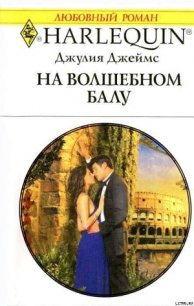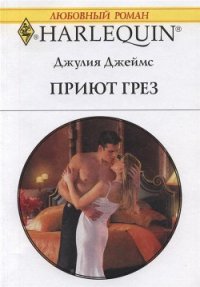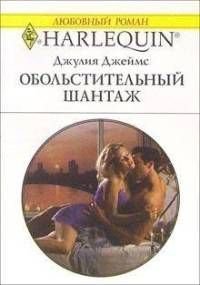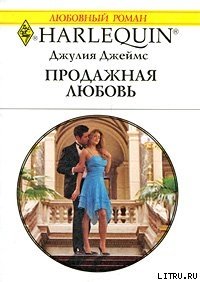Julia Ward Howe - Richards Laura E. (бесплатная регистрация книга TXT) 📗
Your sister,
Julia.
CHAPTER VIII
LITTLE SAMMY: THE CIVIL WAR
1859-1863; aet. 40-44
There came indeed an hour of fate
By bitter war made desolate
When, reading portents in the sky,
All in a dream I leapt on high
To pin my rhyme to my country's gown.
'Tis my one verse that will not down.
Stars have grown out of mortal crown.
J. W. H.
I honour the author of the "Battle Hymn," and of "The Flag." She was born in the city of New York. I could well wish she were a native of Massachusetts. We have had no such poetess in New England.
Emerson's Journals.
In the winter of 1859 the Doctor's health became so much impaired by overwork that a change of air and scene was imperative. At the same time Theodore Parker, already stricken with a mortal disease, was ordered to Cuba in the hope that a mild climate might check the progress of the consumption. He begged the Howes to join him and his wife, and in February the four sailed for Havana. This expedition is described in "A Trip to Cuba."
The opening chapter presents three of the little party during the rough and stormy voyage:—
"The Philanthropist has lost the movement of the age,—keeled up in an upper berth, convulsively embracing a blanket, what conservative more immovable than he? The Great Man of the party refrains from his large theories, which, like the circles made by the stone thrown into the water, begin somewhere and end nowhere. As we have said, he expounds himself no more, the significant forefinger is down, the eye no longer imprisons yours. But if you ask him how he does, he shakes himself as if, like Farinata,—
'avesse l'inferno in gran dispetto,'—
he had a very contemptible opinion of hell."
Several "portraits" follow, among them her own.
"A woman, said to be of a literary turn of mind, in the miserablest condition imaginable. Her clothes, flung at her by the Stewardess, seem to have hit in some places and missed in others. Her listless hands occasionally make an attempt to keep her draperies together, and to pull her hat on her head; but though the intention is evident, she accomplishes little by her motion. She is being perpetually lugged about by a stout steward, who knocks her head against both sides of the vessel, folds her up in the gangway, spreads her out on the deck, and takes her upstairs, downstairs, and in my lady's chamber, where, report says, he feeds her with a spoon, and comforts her with such philosophy as he is master of. N.B. This woman, upon the first change of weather, rose like a cork, dressed like a Christian, and toddled about the deck in the easiest manner, sipping her grog, and cutting sly jokes upon her late companions in misery;—is supposed by some to have been an impostor, and, when ill-treated, announced intentions of writing a book.
"No. 4, my last, is only a sketch;—circumstances allowed no more. Can Grande,[46] the great dog, has been got up out of the pit, where he has worried the Stewardess and snapped at the friend who tried to pat him on the head. Everybody asks where he is. Don't you see that heap of shawls yonder, lying in the sun, and heated up to about 212° Fahrenheit? That slouched hat on top marks the spot where his head should lie,—by treading cautiously in the opposite direction you may discover his feet. All between is perfectly passive and harmless. His chief food is pickles,—his only desire is rest. After all these years of controversy, after all these battles, bravely fought and nobly won, you might write with truth upon this moveless mound of woollens the pathetic words from Pere La Chaise: Implora Pace."
The trip to Cuba was only the beginning of a long voyage for the Parkers, who were bound for Italy. The parting between the friends was sad. All felt that they were to meet no more. Parker died in Florence fifteen months later.
"A pleasant row brought us to the side of the steamer. It was dusk already as we ascended her steep gangway, and from that to darkness there is, at this season, but the interval of a breath. Dusk too were our thoughts, at parting from Can Grande, the mighty, the vehement, the great fighter. How were we to miss his deep music, here and at home! With his assistance we had made a very respectable band; now we were to be only a wandering drum and fife,—the fife particularly shrill, and the drum particularly solemn.... And now came silence, and tears, and last embraces; we slipped down the gangway into our little craft, and looking up, saw bending above us, between the slouched hat and the silver beard, the eyes that we can never forget, that seemed to drop back in the darkness with the solemnity of a last farewell. We went home, and the drum hung himself gloomily on his peg, and the little fife shut up for the remainder of the evening."
"A Trip to Cuba" appeared first serially in the "Atlantic Monthly," then in book form. Years after, a friend, visiting Cuba, took with her a copy of the little volume; it was seized at Havana by the customs house officers, and confiscated as dangerous and incendiary material.
On her return, our mother was asked to write regularly for the New York "Tribune," describing the season at Newport. This was the beginning of a correspondence which lasted well into the time of the Civil War. She says of it:—
"My letters dealt somewhat with social doings in Newport and in Boston, but more with the great events of the time. To me the experience was valuable in that I found myself brought nearer in sympathy to the general public, and helped to a better understanding of its needs and demands."
To her sister Annie
Sunday, November 6, 1859.
The potatoes arrived long since and were most jolly, as indeed they continue to be. Didn't acknowledge them 'cause knew other people did, and thought it best to be unlike the common herd. Have just been to church and heard Clarke preach about John Brown, whom God bless, and will bless! I am much too dull to write anything good about him, but shall say something at the end of my book on Cuba, whereof I am at present correcting the proof-sheets. I went to see his poor wife, who passed through here some days since. We shed tears together and embraced at parting, poor soul! Folks say that the last number of my Cuba is the best thing I ever did, in prose or verse. Even Emerson wrote me about it from Concord. I tell you this in case you should not find out of your own accord that it is good. I have had rather an unsettled autumn—have been very infirm and inactive, but have kept up as well as possible—going to church, also to Opera, also to hear dear Edwin Booth, who is playing better than ever. My children are all well and delightful....
I have finished Tacitus' history, also his Germans.... Chev is not at all annoyed by the newspapers, but has been greatly overdone by anxiety and labor for Brown. Much has come upon his shoulders, getting money, paying counsel, and so on. Of course all the stories about the Northern Abolitionists are the merest stuff. No one knew of Brown's intentions but Brown himself and his handful of men. The attempt I must judge insane but the spirit heroic. I should be glad to be as sure of heaven as that old man may be, following right in the spirit and footsteps of the old martyrs, girding on his sword for the weak and oppressed. His death will be holy and glorious—the gallows cannot dishonor him—he will hallow it....




